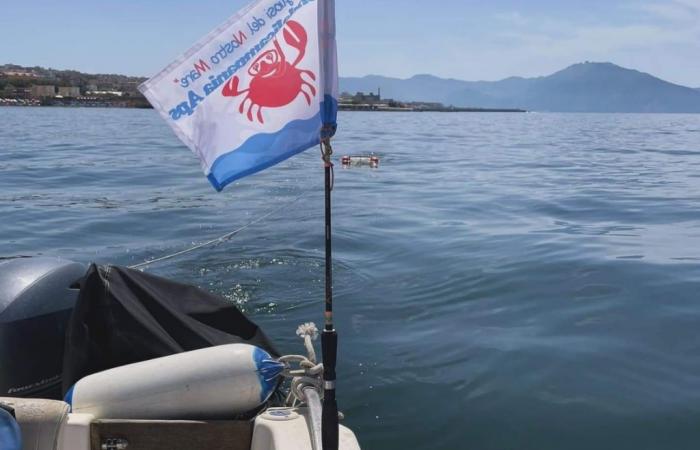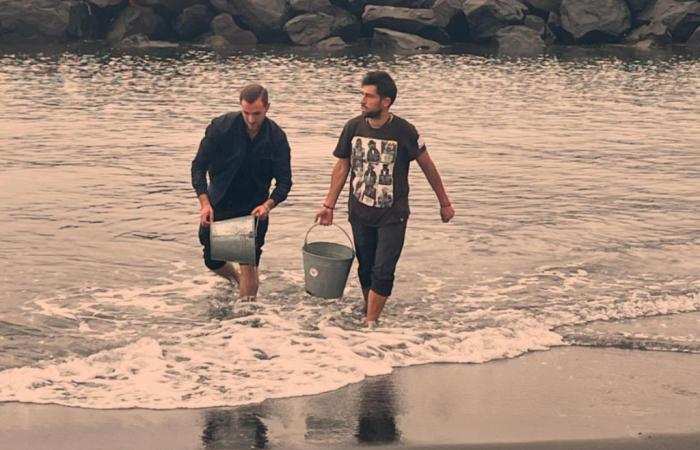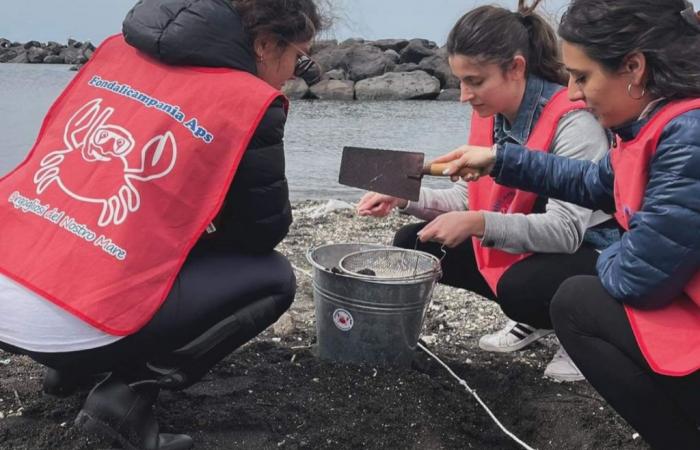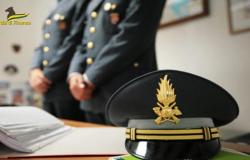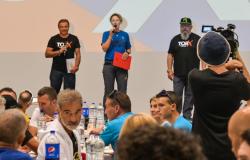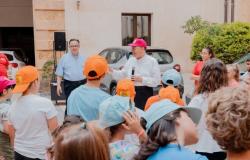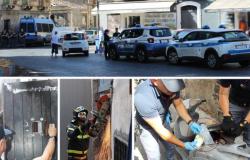Campania – Every day Fondali Campania fights to safeguard the beautiful sea that bathes the tortured body of this land with its kisses. In one of his famous songs, Pino Daniele exhorted and expressed his love for the sea, that sea, father and son of a difficult land black as pitch: “Whoever cares about the sea notices ‘and everything that happens, little by little’ stay far away and let you feel how coce, whoever holds the sea or the sea carries a cross.”. But what is the cross, what is the weight that the inhabitants of sweet Partenope have on their shoulders? The weight of the mafia, the weight of indifference, the weight of negligence, the weight of arrogance.
Fondali Campania is a social promotion association for the safeguard and protection of marine flora and fauna: this year it blows out its first 10 candles, 10 years of fighting with drawn sword and always with head held high. With us today is Davide De Stefano, who together with Mariano De Stefano, Giovanni Paolo Iacomino and Giacomo Torre, is a founding member of the association: «This association was born in 2014. The aim we pursue is to first make our territory known and then protect it and we do this through the creation and dissemination of information material.”
«Our Fondali Campania was born simply as a group of people who loved and love the sea and want to share this passion with others. We strongly believe that who knows, loves. Knowing the beauties and peculiarities of our territory makes us enthusiasts and lovers. We started with the blog – which still exists and is active today – on which we still publish informative and update articles on the work and projects to which we are all dedicated.”
THE MARELAB PROJECT AND SENTINELS OF THE SEA
The Marelab and Sentinelle del mare projects of Fondali Campania have a common denominator, namely “the measurement of the quantity of microplastics in the environment”, explains Davide. «Unlike macroplastics, microplastics have a significant impact on the territory: once they enter circulation in the waters they become food for animals, which in turn often become our food. In support of this there are several studies that show how now microplastics are also inside our bodies, in fact they have also been found inside the placenta and some of our tissues».
«This worried us quite a bit and our fears were confirmed during a meeting we had in 2018 with Dr. Serena Maggio: his studies on microplastics have highlighted how in the Western Mediterranean there are n‘it’s a copious amount and in particular the point where the levels reach criticality are in the Gulf of Naples”. Hence the choice to use one’s time and resources to monitor the phenomenon: how many microplastics are there? And what types? Having a photograph of the problem is essential to first understand the problem and then proceed to find a solution.
«As Fondali Campania we have four groups of kids who have been monitoring microplastics along the beaches every month for the past two years, covering the entire Gulf of Naples. In this mission we also make use of the collaboration of the Punta Campanella Marine Protected Area and the Kingdom of Nettuno Marine Protected Area.
We aim to slowly extend our database through collaboration with other associations, because our goal is to cover the entire Campania region.”
It is important to bring young people especially closer to the safeguard and protection of nature and the immense gift we have, the sea
Equipped with bucket, bottles and test tubes, the volunteers provide their service not only in the sea, but also along the shoreline in order to establish a database in which there is a comparison between the microplastics present in the water and in the sand. Davide, founding member of Fondali Campania, is keen to point out that their monitoring absolutely does not interfere with or replace the direct monitoring of the institutions: «Our monitoring is also social and human monitoringBy making ourselves seen in this way, we have a different way of interacting with men, women and children, thus also carrying out an information service at the same time.”
THE PLAGUE OF MICROPLASTICS IN THE GULF OF NAPLES ACCORDING TO CAMPANIA SEAFOODS
The problem of microplastics is one of the environmental plagues of the 21st century. These particles are pervasive in seas, oceans, rivers and lakes, and they have also been found in remote areas such as the deep ocean and polar regions. The ecological impacts of microplastics are significant: they can be ingested by a wide range of marine organisms, thus entering the food chain and causing toxic effects.
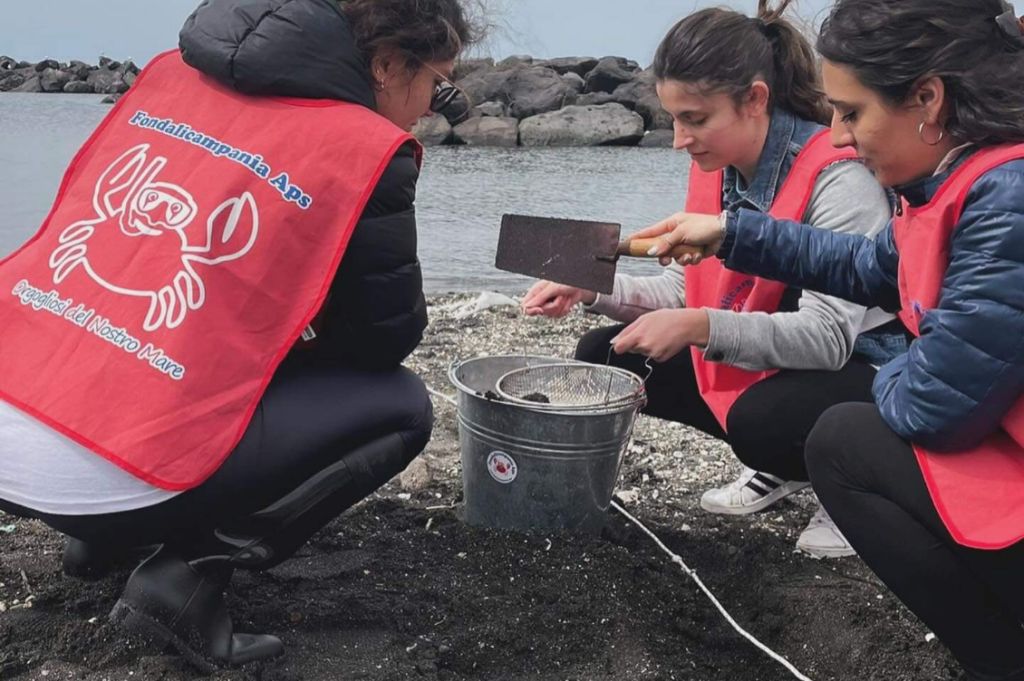
«A lot has emerged from the study that we at Fondali Campania are carrying out: the most interesting thing was discovering the values of the polymers. The highest incidence is undoubtedly held by polystyrene, followed by PET, the primary plastic already in 5 mm format. In third place are the classic ones derived from the fragmentation of larger plastic, which are often left on the beach or thrown directly into waterways. As far as the quantity is concerned, the worrying fact is that they are uniformly distributed throughout the territory. Where barriers are present the quantity is clearly smaller but never absent. This is not how we can eliminate the problem. It must be resolved upstream.”
Campania seabeds, but its attention is not only for seabeds, it is therefore an association which does not seek a palliative, but which scrutinises and gets to the depths of the problem; discovers the sea from the belly and not from the surface. And they do it at every age and at every latitude: «It is important to bring young people especially closer to the safeguard and protection of nature and the immense gift we have, the sea».

